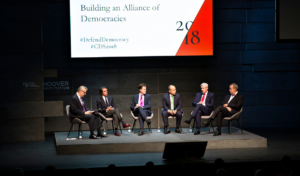
Alliance of democracies
Today, the cohesion of the West matters as much as ever in the face of a newly assertive Russia and China, argues David Reynolds, professor of international history at the University of Cambridge.
Under fourth-term President Vladimir Putin, Russia’s annexation of Crimea in 2014 and its continued interference in the domestic politics of Western democracies threaten the stability of the postwar order. Mr. Putin has recently dismissed liberalism as “obsolete.” In Beijing, President-for-life Xi Jinping has embarked on a grandiose strategy to take control of the South China Sea and to expand China’s global reach under the “one belt, one road” initiative, he writes for The Wall Street Journal.
In 2019, the U.S. remains the world’s leading military and economic power, but its hegemony is under threat from these challengers. Arguably it needs allies as much today as it did during the Cold War, he adds. but recent developments – none of which is conducive to the solidarity of the West – threaten the alliance of democracies. 
Europe risks irrelevance in the age of great power competition, argues former Swedish premier Carl Bildt. co-chair of the European Council on Foreign Relations (ECFR) and co-author of the report ‘From Plaything to Player: How Europe Can Stand Up for Itself in the Next Five Years’. An unpredictable US, rising China and revanchist Russia pose serious strategic challenges, he argues in The Financial Times:
The EU needs to find a system for setting foreign policy that can better protect its strategic sovereignty. It should establish a political process at the European level that develops the ability to act independently and, at the same time, forges new mechanisms for encouraging unity among member states.
On the other hand…
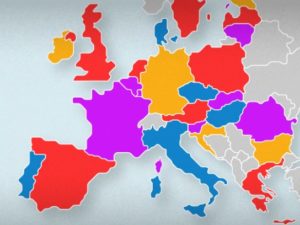
Eurozine
Long deemed strategically irrelevant by the United States, the EU is poised to become a major geopolitical power. Washington should take note, argues analyst Max Bergmann. The recent European parliamentary elections have shown that Europe’s political center of gravity is shifting from national capitals to Brussels and the European Union, he contends in Europe Is Back, an article for Foreign Policy:
They saw turnout rise for the first time ever, surpassing 50 percent. The boost was driven by a highly charged debate about the EU’s future, pitting far-right nationalists looking to devolve power from the EU against unionists looking to strengthen it. In the end, a robust showing from pro-EU parties, particularly the Greens, staved off a feared far-right surge. As the Washington Post columnist Anne Applebaum* observed following the elections, “the continent is becoming a single political space.”
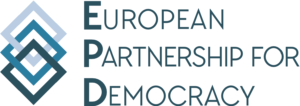 The EU and affiliated institutions have been heavily criticized for how they have dealt with growing autocracy in Hungary after Prime Minister Viktor Orbán returned to power. The European Commission also detected problems in Poland as early as late 2015. In both instances, increases in autocracy were perceived but not prevented, notes Ken Godfrey, director of the European Partnership for Democracy.
The EU and affiliated institutions have been heavily criticized for how they have dealt with growing autocracy in Hungary after Prime Minister Viktor Orbán returned to power. The European Commission also detected problems in Poland as early as late 2015. In both instances, increases in autocracy were perceived but not prevented, notes Ken Godfrey, director of the European Partnership for Democracy.
Commentators and politicians often repeat the mantra that democracy takes time because a culture of accountability and transparency does not develop overnight. Skeptics of democracy support often point out that democratic culture cannot be created in short order. …Dealing with democratic erosion will call for updated and bold approaches from citizens, practitioners, and the international community, but these efforts can also benefit from today’s slower, more incremental rollback of democratic norms and practices.
 The countries of Central and Eastern Europe are emerging as key players in transatlantic relations, not least because they share many of the challenges and pathologies afflicting the US and Western Europe, an Atlantic Council/GLOBSEC conference on “The United States and Central Europe: Celebrating Europe Whole and Free” heard this week.
The countries of Central and Eastern Europe are emerging as key players in transatlantic relations, not least because they share many of the challenges and pathologies afflicting the US and Western Europe, an Atlantic Council/GLOBSEC conference on “The United States and Central Europe: Celebrating Europe Whole and Free” heard this week.
The rise of populist rhetoric on immigration and conservative social values in several Central European states “shouldn’t surprise anybody,” as it mirrors similar responses to “disruptive change” that have occurred throughout the United States and Western Europe, the Atlantic Council’s Daniel Fried*argued. “The United States, UK, Germany, and France are going through versions of political reaction in the face of stresses,” he argued, so Central Europe should not be penalized for doing the same, especially given the relative youth of its democratic systems and recent experience of Soviet domination.
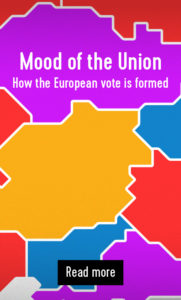
Eurozine
With the decline of U.S. leadership, European governments and pro-democratic actors are leaning forward on some parts of the democracy agenda, such as multilateral support of democracy, open governance, media freedom, anti-corruption, and human rights, Carnegie analyst Thomas Carothers writes in a new analysis.
The trilateral relationship between the US, China, and the EU will determine the shape of the global economy in the next century; the three of them collectively account for half of global GDP, says the ECFR’s From Plaything to Player report:
The EU has recently done a fairly good job of creating a common front in economic foreign policy on China, but it has been less good at responding to China’s geopolitical challenge in east Asia or even in Africa and the Middle East. Despite its best efforts, the EU has failed to realise that it shares with the US a common interest in addressing the China challenge and to find a way to form a united front or, even better, use their mutual problem to ease tension between Washington and European capitals.
*A National Endowment for Democracy board member.

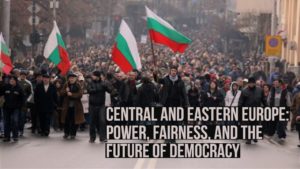 EU diplomatic sources
EU diplomatic sources 





